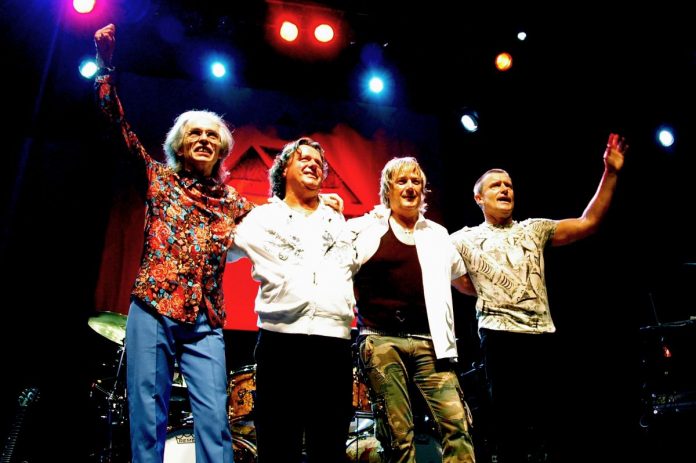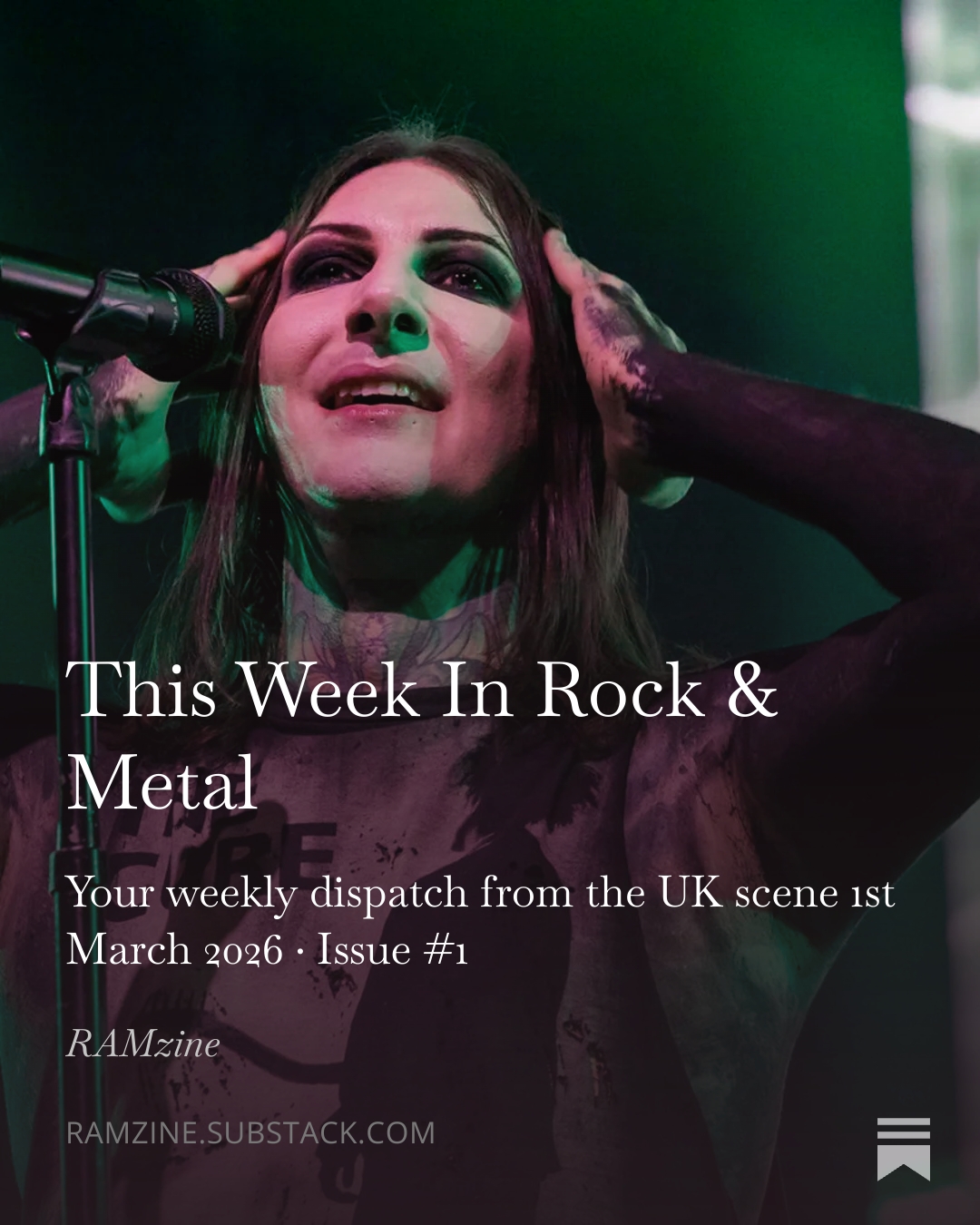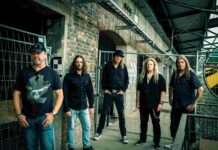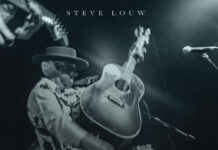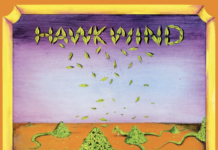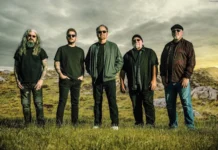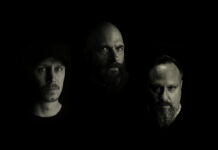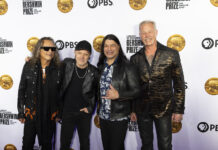Multi-platinum selling English supergroup Asia recently released Fantasia, Live In Tokyo 2007 on vinyl for the first time ever, as a 3LP set, through BMG Records.
Recorded on Asia’s 25th anniversary, and featuring the reformed original line-up of lead vocalist/bassist John Wetton (King Crimson, Uriah Heep), guitarist Steve Howe (Yes), keyboard player Geoff Downes (Yes, Buggles) and drummer Carl Palmer from Emerson, Lake & Palmer, this vinyl collection includes informative sleeve notes on the trepidation felt in coming together once more, and their mutual surprise at how many wounds were already healed.
The 18 track setlist focusses on their globally successful 1982 debut album Asia and features key tracks and worldwide anthemic hit singles like ‘Heat Of The Moment’ along with select tracks from their second LP Alpha and one song each from the band members’ previous bands in the form of ‘Video Killed The Radio Star’, ‘Roundabout’, ‘Fanfare For The Common Man’ and ‘The Court Of The Crimson King’.
For those still young enough not to know, in pooling their talents Wetton, Palmer, Downes and Howe immediately became the epitome of a supergroup of rock aristocracy and the natural heir to its members’ legendary bands of the 70s, ones they themselves had been key members of. Leaving behind their progressive roots, Asia embraced the commercial FM rock sound that dominated US airwaves and took that, and the new MTV video channel, by storm. The single ‘Heat Of The Moment’ was a world-wide monster smash and their eponymous 1982 debut album spent an incredible nine weeks at No. 1 on the Billboard chart as Asia became the biggest selling album of the year and world tour dates sold out.
A second album, Alpha, was released in 1983. The four original members reconvened in 2006 for a world tour, to celebrate the 25th anniversary of that incredible success, and the album Phoenix followed.
As with the original Asia album covers, the legendary designer Roger Dean is responsible for Fantasia, Live In Tokyo 2007 and it features the following tracks: Side A: ‘Time Again’, ‘Wildest Dreams’, ‘One Step Closer’, Side B: ‘Roundabout’, ‘Without You’; Side C: ‘Cutting It Fine’, ‘Intersection Blues’, ‘Fanfare For The Common Man’; Side D: ‘The Smile Has Left Your Eyes’, ‘Don’t Cry, ‘In The Court Of The Crimson King’, ‘Here Comes The Feeling’; Side E: ‘Video Killed The Radio Star’, ‘The Heat Goes On’, ‘Only Time Will Tell’; Side F: ‘Sole Survivor’, ‘Ride Easy’ and ‘Heat Of The Moment’.
As the needle pulls in for Side A and ‘Time Again’, its opening line: “Fate looks certain but then nothing’s guaranteed” wholly prophetic, audience applause having subsided as Asia illicit deep-grungy grunts of skronking noise more akin to King Crimson, than we recall this radio-friendly band in their heyday, only for vocal sighs to pronounce a more Yes-like state. Palmer soon kicks matters into shape, and there’s the feeling having all introduced their past band-signature sounds now it’s time for the song itself it to proceed properly; swinging with rocking melody, Wetton to the fore between assorted prog-style instrumental breaks.
Howe leads the way in with a spiralling guitar on ‘Wildest Dreams’ only for Downes electric piano to take precedence as Wetton sings this anti-war number, intimating differing times and places through history. All these years later, one’s initially shocked by how so much of it moves to a tempo that you could easily imagine dancers on Strictly Dancing gliding across the stage to. With the return of Howe’s guitar line begins to steer the sounds more progressively, and a little more aggressively too, Palmer’s drumming taking great effect some four minutes in, before climaxing with tubular bells.
Wetton greets the crowd, commenting on how good it is to be there, then with a pregnant pause, as “the original band”, leading us to recall how soon it all fell apart first time round. ‘Wildest Dreams’ ostensibly is love song, about nearly getting the woman of your dreams, but in hindsight there are aspects that make you consider some of Wetton’s past lifestyle problems. ‘One Step Closer’ is oddly old school Genesis-like initially, but with Downes’ synthesiser weaving away and a stirring mainstream chorus, you’re consciously aware that beyond their prog past, Asia were writing songs more in tune with the appeal of Ultravox and Flock Of Eagles, albeit more accomplished in performance.
Vinyl running at a shorter length, rather swiftly having turn over to Side B we begin with a cover, and while a roar goes up from the crowd as Howe applies the harmonics and phrases of the Yes classic ‘Roundabout’ you can already sense a change in pace, and possibly sacrilegiously for as Chris Squire’s iconic bass line is replaced by a somewhat rolling blues line from Wetton – It’s actually quite amazing that it works but that it does many will still disapprove of. What you can’t fault is his vocals strong and to the fore, rather epically, very different from Anderson’s. However, the musical interchange sections feel a little light, plodding somewhat as a collective, despite good individual performances. By comparison, though progressive rock blessed, the instrumentation on ‘Without You’ serves the song well. From deep near-speaking to higher excesses and choral intonements too, vocally this is potent, Howe’s guitar solo naturally extemporising beyond this.
Howe plays acoustic for Side C’s ‘Cutting It Fine’, where he and Downes deliver a most catchy melody line, though naggingly it’s reminiscent of something else from an even earlier time period I can’t quite recall. That it surfaces here retooled as an amalgamation of yacht rock with post-new romantic stylings again shows the song-writing came first, the approach of the arrangements later. Half way through, it drops to a piano and strings solo from Downes, that’s nicely moody, rather ecclesiastical initially becoming more imperial pageant-like towards conclusion. This appears a cue for solo, with first Howe playing the ragtime ‘Intersection Blues’ to culturally-polite Japanese crowd clapping. However, a mighty roar goes up for Aaron’s Copeland, ‘Fanfare For The Common Man’, hilariously appropriated by The Rolling Stones in their empirical heyday before ELP rocked it up. Palmer’s drums are noticeably loud in the mix, Downes takes care of the main theme, Howe intersperses with some interesting squiggly wailing rock, and Wetton’s bass, while different to Lake’s in harder sound, generally follows through faithfully, right up to the time he solos (too briefly).
Side D opens with two of a pair, thematically and as piano led ballads. With most of the show devoted to the self-titled debut album, just a few come from the follow-up Alpha album, released in July 2023, and listening to ‘The Smile Has Left Your Eyes’, hindsight reveals remarkable similarities to ‘Alone’ a hit later in 1987 for Heart, but written by Billy Steinberg and Tom Kelly for their band i-Ten’s Taking A Cold Look album, released but a month before Asia’s. Based on the dates that’s absolute sheer coincidence, albeit musicologists can no doubt offer conventional composition theories regarding such. Either way, the sympathy expressed in that number is further endeared, that better times are ahead, with ‘Don’t Cry, performed with hopeful bounce and flair.
At the other extreme ‘In The Court Of The Crimson King’ follows, though it’s not the full-on aggressive assassin hiding a courtroom curtain manner of Fripp’s version, but a more outwardly sympathetic but in truth devious disciple attending a Plantagenet lord’s ball under Howe’s fret-working and Palmer’s orchestrated percussion. The instrumental section itself is a searching, seeking and revelatory piece, and Wetton sings it as a moral or fable, rather than some sinister plot dark fairy tale.
Buoyant, melodic pomp rock with extremely able yet understated musicianship here is played prettily on ‘Here Comes The Feeling’ finishing this side before we drop the needle on the third piece of vinyl and Buggles hit ‘Video Killed The Radio Star’ greets us. Again a tad slower, dissipating some of the drama of the original albeit Palmer maintains the piece has a driven impetus, making it more a rocker and while Wetton sings it in his own way, he performs effortlessly, at a higher pitch than was his norm. This stated, here and elsewhere, you begin to acknowledge recorded backing vocals are also being used, possibly via keyboard effects. Howe’s rocking solo on the outplay proves a most pleasant surprise, and from hereon, with their second wind the band deliver ‘The Heat Goes On’, Palmer once more a delight as he applies a jazzy swing feel to the pop-progging rocker, then just before half way through Wetton’s bass perks up and Downes ensures no note on his keyboards go untouched. The volume noticeably goes up with ‘Only Time Will Tell’ and the band as a unit feel tighter here; it’s just so much better, and one wonders if it’s partly because Howe plays a more important strident role here. The song achieves all that it can and ends in a most proggy way.
Side F offers but two tracks again, and as expected they’re the big-hitters
Synth, distortion and wah-wah sounds predominate as riff to ‘Sole Survivor’ begins to emerge. Rather heavy, Howe’s guitar sizzles spicily and it’s lovely to hear Wetton’s voice get raw and throaty with deep determination, just as Downe’s keyboards counterpoint in the softer section, before Palmer brings it all back into life. The extended bluesy prog workout is also pretty cool, right up to Wetton roaring away and bracing everyone ready for it to conclude. Obviously enjoying himself, Wetton laughs, as he tells them the next track, ‘Ride Easy’ was only a single B-Side. Primarily piano and delicately applied acoustic, aside from a quite exquisite instrumental section, it’s lyrically poignant and once more you ponder what demons Wetton may have been fighting, in those bygone days when men weren’t supposed to share their feelings save in song.
With brash guitar and Wetton shouting out “Come on!” the anthemic ‘Heat Of The Moment’ conquers the years; Palmer first sorting the men out from the boys, then those who are rock gods from mortal men (ie. Carl Palmer is almighty) before you have to get up and lift the record off, just like the good old days.
As noted, several of the song’s tend to be a tad slower than on their original release. The musicianship’s still there so that’s not the reason. Often, long established bands to change key to suit their lead singer’s vocal range diminished by age, but Wetton is in particularly strong form vocally throughout. I doubt many will care, the pluses outweigh my more critical concerns.
While the members were still heavily involved in other projects, they came together again to record Omega in 2010 and XXX in 2012.Thereafter, Howe concentrate on Yes and was absent for 2014’s Gravitas. Following that tour came the news of John Wetton’s treatment for cancer, a fight he sadly lost in 2017. Thus, hearing him in such fine fettle throughout this Toyko concert is a joy.
By simultaneously celebrating their debut album alongside the legacy of their foundational bands, Wetton, Downes, Howe and Palmer delivered a clear reminder of both their collective artistic pedigree.
Fantasia, Live In Tokyo 2007 can be ordered by clicking here.


